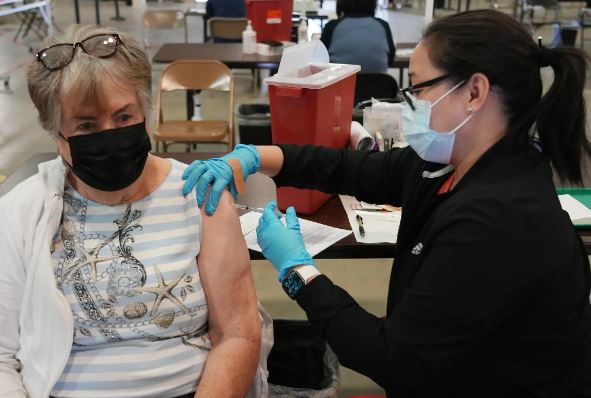The Centers for Disease Control and Prevention (CDC) announced on Wednesday that Americans aged 65 and older should receive an additional dose of the latest Covid vaccine this spring. This decision comes in light of preliminary data presented by federal researchers at a meeting of the agency’s Advisory Committee on Immunization Practices, indicating that the latest vaccines, introduced in the fall, have an effectiveness of about 40 to 50 percent against symptomatic infection or hospitalization. While this efficacy rate is lower than desired, particularly against currently circulating variants, it still highlights the importance of additional vaccination for certain demographic groups.
The spring shot would serve as a second dose of the most recent iteration of the Pfizer-BioNTech, Moderna, or Novavax vaccines, specifically tailored to enhance protection against evolving strains of the virus. Notably, individuals who are immunocompromised are already eligible for additional doses of the vaccine, and the recommendation now extends to older adults aged 65 and above. According to CDC data, adults in this age group accounted for two-thirds of all hospitalizations related to Covid between October 2023 and January 2024, with those aged 75 and older representing nearly half of these cases. Given their heightened risk of severe illness and hospitalization, older adults stand to benefit the most from a spring dose.
Dr. Camille Kotton, a physician at Massachusetts General Hospital and a member of the scientific advisory panel, emphasized the importance of additional vaccination for those who are moderately to severely immunocompromised, highlighting the potential life-saving benefits of an extra dose. The decision to recommend a spring shot for older adults was based on considerations of efficacy, risk, and the demographic distribution of Covid-related hospitalizations.
However, while the benefits of a spring shot are clear for older adults, the same may not hold true for younger age groups. Modeling presented at the meeting suggested that a second dose in the spring would not be cost-effective for adults aged 18 to 64 years, who are at lower risk of severe illness and hospitalization compared to older adults. Thus, the recommendation is specifically targeted towards those most vulnerable to Covid-related complications.
Despite the benefits of additional vaccination, uptake rates of the Covid vaccine have varied across different demographic groups. Data from the National Immunization Survey in January revealed that nearly half of those who did not plan to get vaccinated cited concerns about unknown serious side effects as a major barrier. Additionally, vaccine availability and confusion over insurance coverage may have contributed to lower uptake rates, particularly among certain populations such as Native Americans, Alaska Natives, and rural residents.
Looking ahead, the CDC is planning for the next phase of Covid vaccination, with discussions already underway regarding next fall’s vaccine. A revised plan proposes that the CDC advisers meet in June to make recommendations on who should receive the vaccine, allowing for more time for vaccine manufacturing and distribution before the fall peak of infections. Ultimately, the goal remains to provide clear and effective guidance to ensure maximum protection against Covid for all eligible populations.

